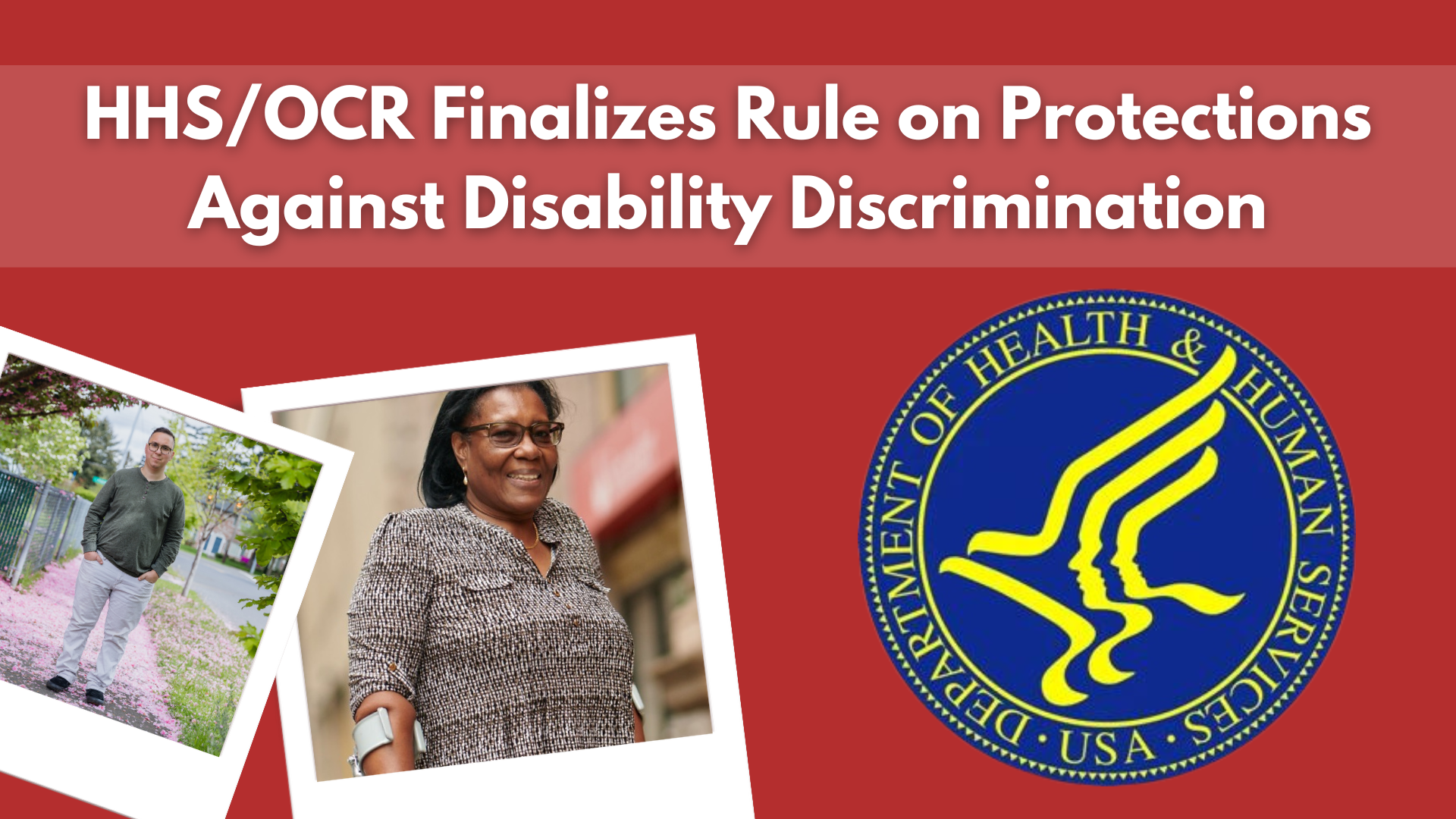HHS/OCR FINALIZES RULE ON PROTECTIONS AGAINST DISABILITY DISCRIMINATION
It has been a busy week for the Department of Health and Human Services (HHS), the Office for Civil Rights (OCR), and the Centers for Medicare and Medicaid Services (CMS)!
HHS through the OCR finalized a rule that prohibits the discrimination based on disability, in turn strengthening protections for people with disabilities (PWDs) under Section 504 from the Rehabilitation Act of 1973. While this protection has been long overdue, it is still a great milestone for PWDs in obtaining access to equitable healthcare services.
The pre-publication version of the final rule has been published in the Federal Register and is available to read and a factsheet should be released in the next few weeks.
Justice in Aging covered another final rule and commended HHS/OCR for further improving Section 1557 of the Affordable Care Act, which prohibits discrimination on disability in covered health programs/activities. Justice in Aging will provide Health Care Rights Law resources for advocates throughout the month of May.
The Administration for Community Living (ACL) also covered this rule and created a tracker to monitor developing disability-related regulations and changes. ACL will work with the OCR to help ensure that people with disabilities are aware of their rights under Section 1557.
This final rule emphasized the importance of improving access to Medicaid/CHIP for people with limited English proficiency, with a report from the National Immigration Law Center reporting that while these provisions are required, they are insufficient. This directly affects people who are hard-of-hearing or those who are deaf, as they require a sign language interpreter in these settings. NDNRC’s factsheet on communications needs for people with disabilities covers this very subject!
The text of the pre-publication version of the final rule is also available to read online with OCR having published a factsheet.
The Administration has invested over $100 million in community-based organizations to help improve maternal and infant health on a national level. These programs aim to improve the well-being of expecting mothers, addressing needs in infant mortality rates, especially for Black and Indigenous women, and provide other community-based services. This is an important issue for women with disabilities, as they experience these issues at a more compounded rate.
HHS alongside the Administration for Children and Families have finalized a policy that increases protections for youth in child welfare systems, specifically LGTBQI+ children. This pediatric population is overrepresented in foster care and experience worse outcomes compared to children not in this population, especially those whose identity intersects with disability.
HHS shared its plan to promote the responsible use of artificial intelligence (AI) in automated and algorithmic systems, such as those used to improve public benefits program to help meet the needs of those who utilize those systems. This is important, as AI played a role in unenrolling hundreds of thousands from Medicaid by a system developed by Deloitte Consulting LLP, showcasing one of the many negative impacts of AI on the disability community.
Review our latest factsheet on specific information on the availability of special enrollment periods, which are qualifying events that allow individuals to enroll in Affordable Care Act (ACA) Marketplace coverage outside of the open enrollment period, for people with disabilities and unique circumstances that they may face.
This factsheet is especially important, as the Centers for Medicare and Medicaid Services (CMS) has released new provisions due to the unwinding of Medicaid. See if you qualify for an ACA Marketplace plan at HealthCare.Gov and get covered today!
Archives of our weekly updates are available on the NDNRC website. Follow us on Twitter/X at @NDNRC!

